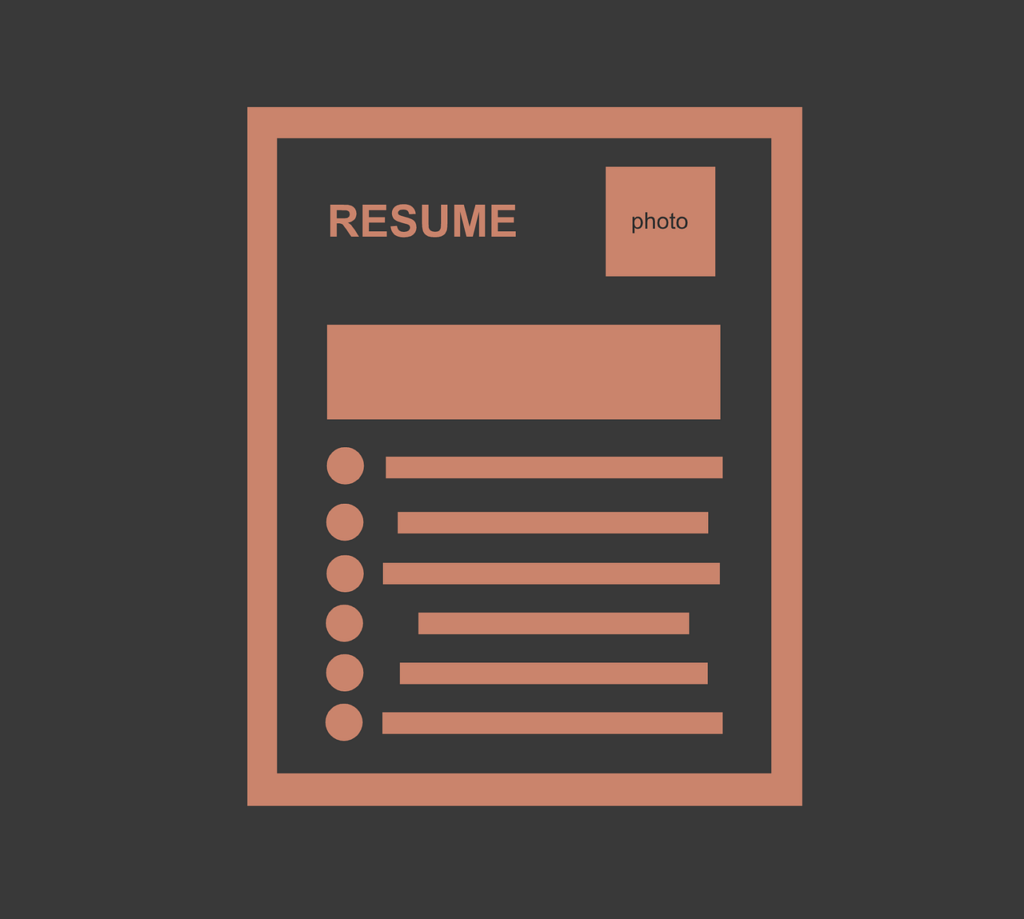Job rejection hurts. We’ve all been there, waiting anxiously for that call or email, only to be met with disappointment. It stings, and it’s easy to feel disheartened. But here’s the thing, everyone faces rejection in their job search. It’s not the end of the road; it’s just a bump along the way. So, how do you bounce back and keep chasing your dream job? Let’s find out how to deal with job rejection.
Jump To Section
Understanding Job Rejection
Job rejection can feel like a punch to the gut, but it’s important to understand why it happens. Knowing the reasons can help you bounce back stronger.
Common Reasons for Job Rejection
- Lack of Specific Qualifications
Sometimes, you might not meet the exact requirements of the job. Maybe they needed someone with a bit more experience or a specific skill you haven’t mastered yet. - More Experienced Candidates
The job market is tough. There might be someone out there with more experience who also applied. It’s not necessarily about you; it’s just that the competition is fierce. - Cultural Fit with the Employer
Employers look for candidates who would fit well within their company culture. If they feel like the fit isn’t right, they might opt for someone else. - High Competition
Sometimes, it just comes down to the number of applicants. With so many people vying for the same position, it’s tougher to stand out.
Psychological Impact
Job rejection affects us emotionally and mentally. It’s natural to feel down, but it’s essential to get back up.
- Emotional Responses
It’s okay to feel sad, frustrated, or even angry. Allow yourself to feel these emotions. They’re a normal part of the process. - Setbacks and Self-Esteem
Rejection can feel like a personal setback and shake your confidence. Remember, it doesn’t mean you’re not good enough. It’s just one step in your career development. - Avoid Getting Disheartened
It’s easy to get disheartened, but don’t let it linger. Think of rejection as a temporary setback, not a definitive end to your job search.
Understanding why you didn’t get the job can make the rejection easier to handle. It helps you see it not as a personal failure but as a part of the job search process. Keep these points in mind, and you’ll be better equipped to bounce back and move forward stronger.
Immediate Steps After a Rejection
Getting that rejection email can sting, but don’t let it bring you down for too long. Here are some quick, actionable steps you can take to bounce back and keep moving forward.
1. Take a Breather
First things first, take a deep breath. It’s perfectly okay to feel disappointed. Allow yourself a moment to process your emotions.
Maybe go for a walk, talk to a friend, or indulge in your favorite comfort food. Whether it’s a cozy coffee or a bit of chocolate, give yourself that little treat. Remember, this feeling is temporary and part of the journey.
2. Reflect on the Interview
Think about the interview process. What went well? Were there areas where you felt less confident? Jot down any thoughts or notes.
This reflection can be incredibly valuable for your next interview. Did your answers align well with the job role? Were there moments where you felt more prepared or less? Analyzing these points will help you improve and feel more assured next time.
3. Ask for Feedback
Don’t hesitate to ask the employer for feedback. Send a polite email thanking them for the opportunity and ask if they can provide any insights on why you weren’t selected.
For example, you might say, “Thank you for considering my application. I would appreciate any feedback you could provide to help me improve for future opportunities.” This feedback can be a goldmine for your future job applications.
4. Update Your Resume and LinkedIn

Use this time to update your resume and LinkedIn profile. Maybe you’ve learned a new skill or completed a project since you last updated them.
Highlight new accomplishments or certifications. Keeping everything fresh ensures you’re always ready for the next opportunity and shows potential employers that you’re proactive and always improving.
5. Keep Networking
Reach out to your network. Let them know you’re still on the lookout for new opportunities. Sometimes, the best job leads come from a friend or a colleague.
Attend industry events, online webinars, or professional groups. A simple message like, “Hey, I’m currently exploring new opportunities in XYZ field. If you know of any openings or can refer me to someone, I’d appreciate it,” can go a long way.
6. Apply to More Jobs
Don’t let one rejection stop you from applying to other jobs. Keep the momentum going. The more you apply, the higher your chances of landing that perfect job. Tailor each application to the specific role and company to increase your chances of success.
7. Self-Care
Lastly, take care of yourself. Job searching can be stressful, so make sure you’re also doing things that make you happy. Exercise, hobbies, and spending time with loved ones can make a big difference. Whether it’s a 20-minute yoga session, reading a good book, or just catching up with friends, these activities can help recharge your energy and spirit.
Feeling down after a rejection is normal, but remember, every setback is temporary and brings you closer to your next success. Use these steps to keep moving forward and stay positive on your journey. Stay resilient. Your next opportunity is just around the corner.
Strategies to Bounce Back From Job Rejection
Experiencing job rejection isn’t easy, but don’t let it keep you down. Here are some practical strategies to help you bounce back and stay motivated.
1. Reframe Your Mindset

Shift your perspective. Instead of seeing rejection as a failure, view it as a learning opportunity. Every interview and every application teaches you something valuable for future interviews. Remember that every “no” brings you closer to a “yes” and your next job.
2. Set Small, Achievable Goals
Break down your job search into smaller, manageable tasks. Set daily or weekly goals, like updating your resume, applying to a certain number of jobs, or networking with a few contacts. Achieving these small goals can boost your confidence and keep you motivated.
3. Stay Organized
Keep track of your applications, interviews, and follow-ups. Use a spreadsheet or a job search app to help you stay organized. Knowing where you stand with each opportunity can reduce stress and make the process feel more manageable.
4. Keep Learning
Use your free time to learn new skills or improve existing ones. There are countless online courses available for free or at a low cost. Adding new skills to your resume can make you a stronger candidate and boost your confidence.
5. Network, Network, Network
Continue to build and maintain your professional network. Attend industry events, join relevant online groups, and reach out to former colleagues. Networking can lead to unexpected opportunities and valuable advice.
6. Practice Self-Care
Job searching can be stressful, so it’s crucial to take care of yourself. Get enough sleep, eat well, and exercise regularly. Make time for activities that you enjoy, whether it’s reading, hiking, or spending time with friends.
7. Seek Support
Don’t go through this process alone. Talk to friends, family, or even a career counselor about what you’re going through. Sometimes just having someone to listen can make a big difference.
8. Stay Positive
It’s essential to keep a positive attitude. Celebrate your progress, no matter how small. Remember, resilience is key. The more you believe in yourself, the more likely you are to attract the right opportunities.
Bouncing back after a rejection is all about staying positive, organized, and proactive. Use these strategies to keep moving forward, and remember, the right job is out there waiting for you. Stay strong. You’ve got this!
Maintaining a Positive Mindset
Practicing Resilience
Rejection can feel like a punch to the gut, but it’s important to bounce back. Staying motivated despite rejections can be tough, but it’s possible. Think of each rejection as a stepping stone toward your dream job. Set realistic and achievable goals to keep yourself moving forward. Celebrate small wins along the way, like polishing your resume or nailing an interview question. They all add up!
Finding Support
You’re not in this alone. Talk to friends, family, or a career coach for advice and encouragement. Sometimes, just hearing someone say, “You got this,” can make a world of difference. Joining support groups for job seekers can also be beneficial. You’ll meet people facing similar challenges, and together, you can share tips and boost each other’s spirits.
Focusing on the Bigger Picture
Remember, a rejection doesn’t necessarily mean you’re not the right fit for the job. Sometimes, it’s just about timing or company fit. Keep the dream job in perspective and keep searching. Each application, and each job interview, is another chance to get closer to that perfect role. Stay focused, and don’t let a few “no’s” discourage you from finding your “yes.”
By keeping these tips in mind, you’ll be able to maintain a positive mindset throughout your job search journey. Resilience, support, and perspective are your best allies in landing that dream job.
Keep Going – You’ve Got This!
Remember, every setback is just a setup for your comeback. The job search journey can be a rollercoaster, but with resilience, support, and a focus on the bigger picture, you’ll find your way. Stay motivated, set realistic goals, and never hesitate to lean on your support network. You’ve got the skills, the passion, and the determination to find that perfect job—so keep pushing forward. Each step you take brings you closer to your goal.
Believe in yourself and stay positive. Your dream job is out there, and it’s waiting just for you. Keep applying, keep learning, and keep believing. You’re not alone in this journey, and great things are just around the corner.
If you found this post helpful, please share it with others who might need a little boost. Don’t forget to subscribe to our blog for more tips and motivation on your job search journey. Let’s support each other and succeed together!


